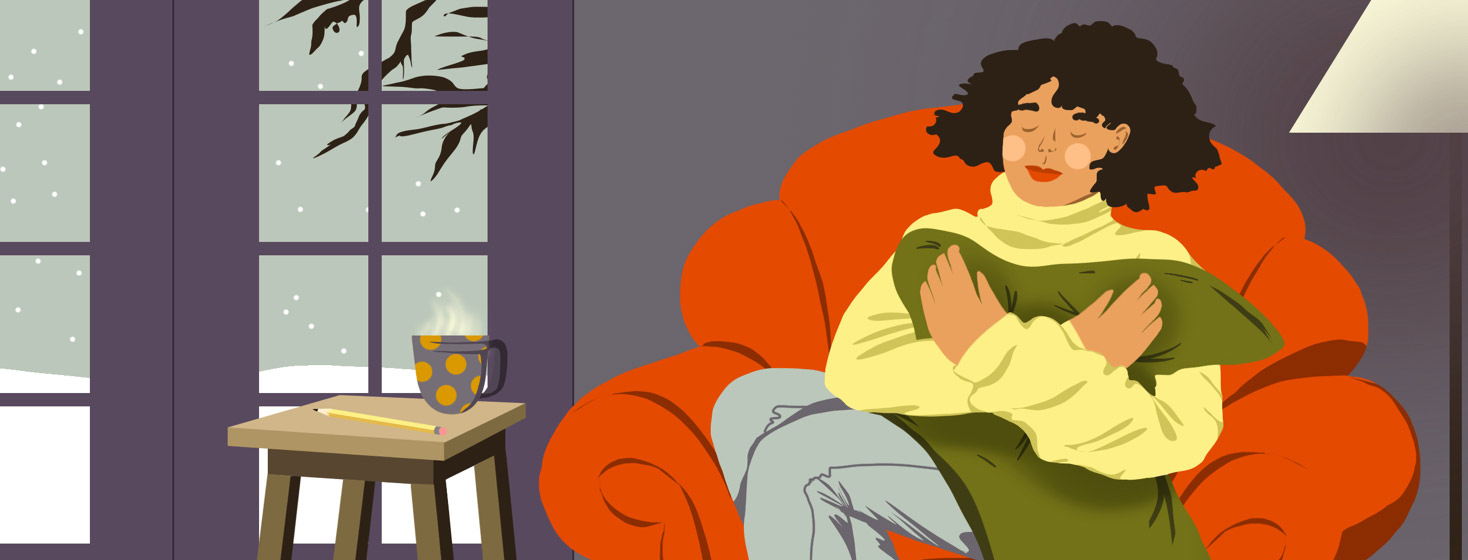Winter Self-Care With COPD
As the temperatures drop and the days grow shorter, focusing on winter self-care is essential. The cold weather can be harsh on our bodies and minds, making establishing routines that promote overall well-being even more important.
Staying hydrated
Hydration is vital year-round, but it's especially important during the winter. The cold air can dry out our skin, noses, and throats. Moreover, dehydration can exacerbate symptoms of dry skin and lung illnesses.
One strategy is to set reminder alarms on your phone to drink a specific amount of water every hour. You can also infuse your water with fruits, herbs, or cucumber to give it a refreshing taste. Additionally, consider drinking warm beverages like tea or broth to help keep you hydrated and cozy.
Winter skincare
In addition to hydration, skincare is critical during the winter months. The cold air can strip our skin of its natural moisture, leading to dryness, itchiness, and irritation.
One of the most critical skincare habits during the winter is moisturizing. Applying lotion or cream immediately after showering or bathing can help lock in moisture and prevent dryness. Look for a moisturizer that contains natural ingredients like coconut oil, shea butter, or olive oil.
In addition to moisturizing, protecting your skin from the harsh winter winds is really important. Wear protective clothing like gloves, hats, and scarves when venturing outdoors, and consider applying a lip balm or hand cream to protect your lips and hands. The scarves are very helpful for our lungs as well. Keeping the cold air out of our lungs helps us breathe easier and stay healthier.
Having the winter blues
While physical self-care is essential, it's equally important to prioritize mental health during the winter months. The shorter days and colder temperatures can lead to feelings of sadness and isolation.
Establishing a consistent routine is one of the most effective ways to combat winter blues. This can include activities like exercise, reading, or spending time with loved ones. Here is an article that talks more about SAD (seasonal affective disorder).
Social connections are vital for our mental health, especially during winter. When we're feeling isolated or lonely, motivating ourselves to reach out to others can be challenging.
Consider scheduling regular video calls or phone calls with friends and family. You can also join online communities or forums for COPD or Alpha 1 to connect with others who share similar interests or experiences.
Start a Forum
Finding warmth and joy
Lastly, take a break from the cold weather. Consider taking a winter vacation to a warmer destination. I know not everyone can do this, but you can take a virtual vacation by exploring online tours of museums and travel destinations or enrolling in free online courses. To find available free courses, just search for free courses online.
Winter self-care is so important for maintaining our physical and mental well-being during the colder months. By prioritizing hydration, skincare, and mental health, we can reduce our risk of illnesses, improve our mood, and increase our energy levels.
Personalizing your winter self-care routine
Remember, self-care is not a one-size-fits-all approach. Experiment with different routines and activities to find what works best for you. And don't forget to be patient and compassionate with yourself as you navigate the challenges of winter.
What are your favorite winter self-care practices? Share your thoughts in the comments below!


Join the conversation